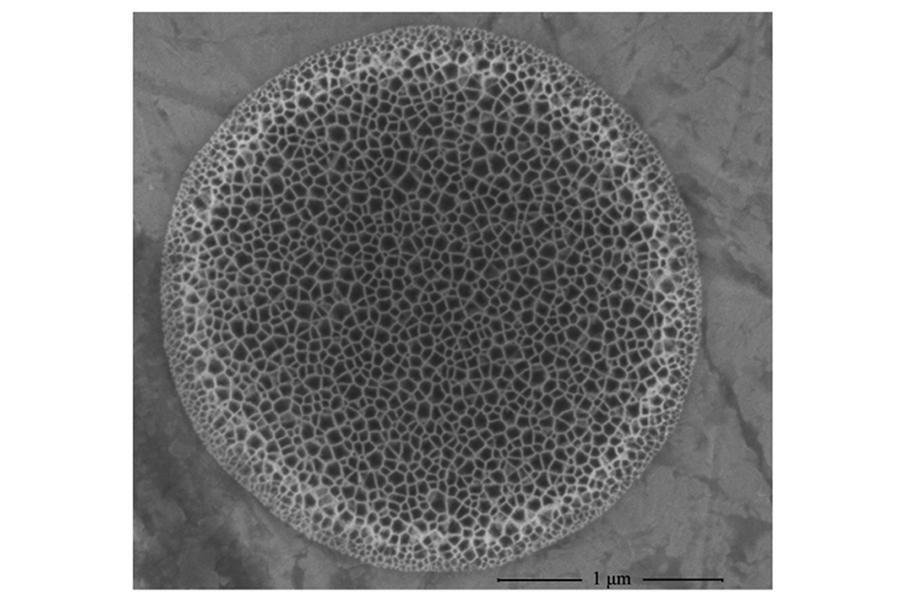Pioneering Medical Advances with Silicon
Xu R, Zhang G, Mai J, et al. An injectable nanoparticle generator enhances delivery of cancer therapeutics. Nat Biotechnol. 2016;34(4):414-418. doi:10.1038/nbt.3506
Silicon is established as the primary material for the semiconductor revolution that has fueled our society since the invention of the transistor more than a half century ago. During this time, silicon-based semiconductor devices have advanced at unprecedented scale and now underpin every industry and all facets of our daily lives. The healthcare industry has improved patient care and outcomes by leveraging semiconductor devices in systems such as magnetic resonance imaging machines, pacemakers, blood pressure monitors, chemistry/blood gas analyzers, and bedside and wireless monitors. More recently, semiconductors have also played a critical role in remote patient monitoring and virtual service delivery.
As semiconductor fabrication techniques and nanostructure engineering approach the atomic level, new opportunities have emerged to use silicon and semiconductor technologies to transform healthcare. To ensure companies can use advanced semiconductor technologies in developing life-saving medical devices, we must rapidly expand domestic semiconductor production by increasing investments in chip innovation and manufacturing.
To fuel this innovation, BrYet US, Inc. joined over 100 leading companies, universities, and nonprofits to form the American Semiconductor Innovation Coalition (ASIC). As part of its mission, ASIC defined its vision for an innovation hub of the National Semiconductor Technology Center (NSTC), which will be established as part of the recently passed CHIPS and Science Act, to bolster chip innovation for the future and restore U.S. leadership in semiconductor research, development, and manufacturing. The NSTC will serve as a hub to marshal semiconductor expertise and resources to deliver much-needed breakthroughs in chip innovation and production.
BrYet US, Inc. views silicon from a unique perspective, not only as an enabler for increasingly sophisticated semiconductor devices, but also as a primary material for biomedical applications that will revolutionize the prevention, diagnosis, and treatment of adverse conditions.
BrYet is using silicon as the basis for innovative therapeutics at effective local concentrations with the fewest possible side effects. Their nanoporous silicon microparticles are readily modifiable, biocompatible and biodegradable, and leverage proven equipment and processes available within the semiconductor industry. Foundational work led by BrYet’s CEO, Dr. Mauro Ferrari, established nanoporous silicon microparticles as a new frontier in cancer therapeutics. The nanoporous silicon microparticles act and respond sequentially to circumvent the biobarriers that exist between the delivery point (i.e. injection site) and the therapeutic target (e.g., a tumor site). The results, published in leading peer-reviewed journals such as Nature Biotechnology and Science Advances and funded in part by the Department of Defense, National Institutes of Health, and National Cancer Institute, were unprecedented and show curative potential.
ASIC represents an opportunity to increase the number of biotechnology startups that can access semiconductor facilities for R&D and production; to develop a robust high-tech interdisciplinary workforce; and most significantly, to successfully commercialize new biomedical and biotechnology breakthroughs that advance the human condition. Case studies such as BrYet are part of an emerging group at the intersection of semiconductor and medicine with the potential to benefit millions of people.
Silicon-based semiconductor devices are now a necessity across industries, especially within the healthcare spectrum. Through ASIC, BrYet will continue to advocate for increased investments into semiconductor research, development, and manufacturing to ensure patients receive the best care and outcomes possible.

